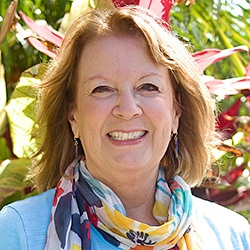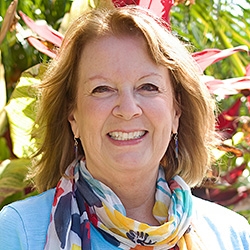

Search Results: needs
-
As you witness injustices in the world, tension, anger, hopelessness, despair and more, may rise up in you. These feelings may lead to reactive thinking that doesn't contribute to healing nor wise action. Mourning is a universal need. If your culture pushed away grief and its emotional expression, you may have habits that block your access to the aliveness of grief. Read on for ways to give grief the space and support it needs.
-
While someone is upset or hurt they may "listen" to us to gather evidence for a rebuttal, to assert or validate a preconceived idea, and so on. When in this "predatory listening" mode, the "listener's" needs overshadow relational values like understanding, connection, or mutuality. In response to this we can consider our purpose, affirm any positive intent or need in what they say, and ask direct, honest questions.
-
One way of simplifying decision-making in relationships is clarity about the level of contact and connection you want with the people you interact with. This means knowing what you want and don’t want to share, the kinds of activities you do and don’t do together, how often, etc. This can help you chose how to best support your needs in that context, and help you to remember to set life-serving boundaries when you need them.
-
This 4 session telecourse recording offers practices while exploring the relationship between the core elements of NVC and universal spiritual principles.
-
Trainer Tip: There's one sure way to find hidden assumptions, stop and check it out!
-
The highest leverage point for effective meetings is preparing with self inquiry. Before saying something, we can ask ourselves about who this is serving, what needs it serves to say it, if there is a request we want to make, how to make the request actionable, and more. If more people at meetings do this, it can reduce the overall number of tangents we experience at meetings.
-
Often, people don't help others when others are in danger, whether it is a parent who is abusing a child, a man who is battering his wife, someone sexually harassing another, a bully making fun of someone, or a person who is abusing a pet. However, intervening can save lives. And bring enrichment, peace, safety, care, and justice to the world.
-
This anecdote illustrates how a young man had the social awareness to consider how male conditioning may bring up competitiveness in his interactions with another man. The young man offered transparency and checked for consent in a way that shows an embodiment of power-with, togetherness, consideration, care, collaboration... and all without displaying any formal NVC training, and without looking to impress.
-
-
-
There are various ways to be known. Learn how to engage and make clear requests accordingly. This includes getting clear in yourself about what exactly you want known; communicating how important it is to you; sharing examples in your life of being known; requesting and negotiating from the energy of the met need; letting the other person know whether or not the relationship is really sustainable for you if the need goes unmet long-term; and checking the other person's capacity.
-
When something happens that we don't like no amount of resentment nor magical thinking will make it disappear. Instead, we can mourn to dissolve our own resistance, resentment, and numbness of resignation. Mourning can allow us to feel pain with acceptance, and without needing to be okay with what happened. Acceptance can bring us to a place where even all the anguish in the world is fully, part of life.
-
-
Trainer Tip: Have you heard the saying, “If it ain’t broke, don’t fix it”? Communication is like that too. Don’t try to adjust your communication and behaviors if they already work for you.
-
- Learn how to set up and maintain effective systems
- Acquire tips for harnessing community buy-in and the energies of key people
- Transform tension and anxiety into peaceful, life-enriching energy
- Remain grounded and confident when facing any kind of conflict
-
In a workshop, a hesitant white neurodivergent man faced a triggering reaction from a Global Majority transgender man. Uncovering their backgrounds, the facilitator addressed family dynamics and exclusion. A repair exercise fostered empathy, challenging assumptions and emphasizing the importance of equitable facilitation for a richer group experience.
-
Oren J. Sofer offers an NVC approach to navigating tough moments—balancing honest self-expression with deep listening. Discover how centering yourself, naming your intentions, and hearing the other person first can create the understanding needed for true connection.
-
Listen to Miki talk about the value of participating in groups, recognizing our inherent nature to do so, how industrialization has hindered our skills and the value of participating in a time when it's most needed.
-
We're in difficult times - possibly at the brink of extinction. What can we do in response? Some nonlinear steps: A.) Notice what isn't working; B.) Mourn so that we can move "towards" from an expanded space inside; C.) Analyze to bring a fuller understanding of what's happening and what's needed; D.) Reframe our inner and outer narratives; E.) Discern what we can contribute; F.) Care; and G.) Bring in support for more resilience and creativity.
-
Without self-acceptance any attempt at growth and transformation, even while parenting, can easily become a path to self-judgments and another yardstick against which to measure ourselves as falling short. Instead, we can practice 1 minute a day or more, or while doing other tasks, to develop the self-compassion and self-acceptance needed to grow both new habits and our capacity to meet our children with calm and compassion.

Quick Links
Subscription Preferences
Stay In Touch!
Looking for ways to keep up with NVC Academy news, get special offers, free resources, or words of inspiration? Here are five ways to stay engaged:



















